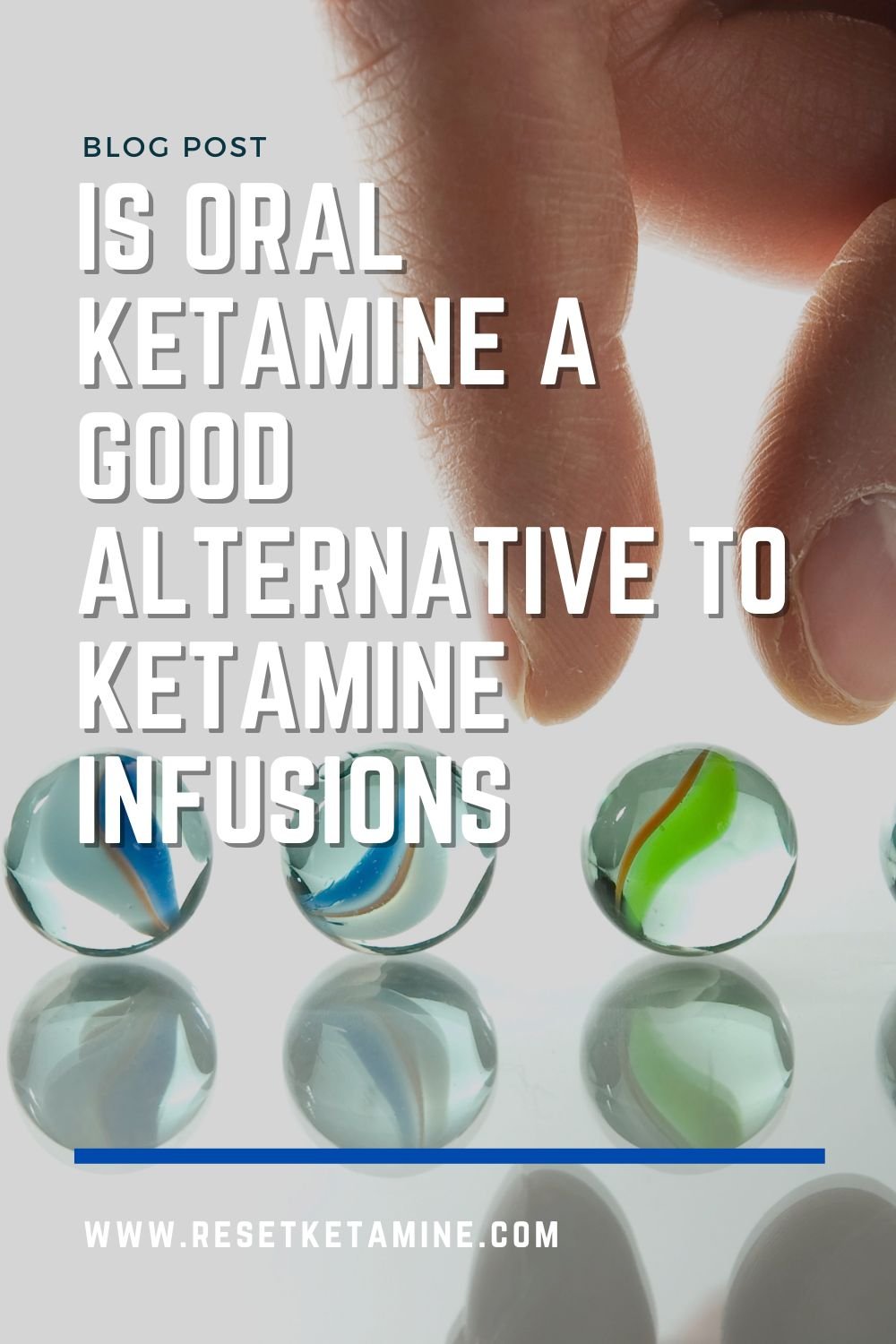There are several ways to administer ketamine, so we will use a recently published systematic review article to answer the question: Is oral ketamine a good alternative to ketamine infusions?
Ketamine is an effective treatment for depression but it can be costly. Is oral ketamine, which is more affordable, a good alternative?
Why Ketamine Is a Good Depression Treatment:
Depression is the leading cause of disability in the world. Unfortunately, standard antidepressant medications can take up to 6-12 weeks for some patients to notice an effect. Leaving it to be discouraging for some. For the amount of time it takes to get some relief, it could be too late for others. With the increase of of depression and suicide, it may be too difficult to endure leaving them without efficient and effective relief.
Although oral antidepressants are the common and primary treatment option, there are others including ketamine which many are finding to be more effective. Although not approved for the treatment of depression, its off-label use is significantly relieving symptoms. The cause of the fast-acting response in ketamine is due in part to the glutamate system. Learn about the other ways ketamine works here.
Ketamine has three leading antidepressant effects that compare to the regular antidepressant treatments:
Fast acting effects only hours after treatment.
Evidence in reducing suicide tendencies.
Can be effective in people with Treatment Resistant Depression.
With so many randomized trials, and meta-analysis showing astonishing and positive results, it’s no wonder why intravenous ketamine has become a rising star in the treatment of depression. Although safe and effective, it is not without side effects which can be prohibitive to some people. Such as those with high blood pressure.
Learn about the The 7 Types of People Who Should NOT Get Ketamine here.
Because of how costly ketamine infusions can be, Dr. Joshua D. Rosenblat and his colleagues investigated oral ketamine’s efficiency, safety, and tolerability. If oral ketamine is as efficacious as intravenous, there is the potential for improved accessibility in the form of lower cost and potential for insurance coverage.
Current studies do not have enough evidence to show the efficacy of oral ketamine over intravenous ketamine.
The Results: Not Enough Evidence
Out of the articles that were reviewed, 223 individuals received oral ketamine for depression. Unfortunately the majority of the studies were “low quality for the lack of binding, and lack of control groups” resulting in inadequate evidence to determine the antidepressant efficacy, safety, and tolerability of oral ketamine. For retrospective and prospective studies, the tolerability was good, with having only mild transient adverse effects. The two reasons the tolerability was good was because of two things:
Lower doses given its bioavailability
Inadequate monitoring and reporting.
Oral ketamine takes longer to show any effects in which intravenous ketamine does not. This makes sense, since oral ketamine has a lower bioavailability which translates to needing more oral ketamine to get the same effect as compared to intravenous ketamine (which has the highest bioavailability). Some studies reported four to six weeks to see any antidepressant effect with oral ketamine, which is similar to traditional antidepressant medications.
In regards to decreased suicidality, only about 3 people reported the effect when taking oral ketamine. As a result of this review having a small number of studies there was insufficient data, to perform a meta-analysis.
The results of this review suggested that oral ketamine is tolerable but larger better designed studies are needed to determine its efficacy.
Although oral ketamine can’t be a substitute for ketamine infusions, it can be a supplement to ketamine infusions.
Is There A Role For Oral Ketamine?
Yes! While this study doesn’t no show it can be substituted for ketamine infusions in its improvement of symptoms, oral ketamine can supplement ketamine infusions. We agree with the authors that future study is required to explore this topic of oral ketamine. Sometimes oral ketamine in the form of troches can be given to extend the time between ketamine infusions. There are some downsides to oral ketamine such as needing higher doses to get a similar effect which can result in experiencing more side effects as well as abuse or misuse of the ketamine since a healthcare provider is not present during its use. However with proper use, there are many people who experience relief when used in conjunction with ketamine infusions.
Study mentioned in this blog:
Rosenblat JD, Carvalho AF, Li M, Lee Y, Subramanieapillai M, McIntyre RS. Oral Ketamine for Depression: A Systematic Review. J Clin Psychiatry. 2019;80(3):18r12475. Published 2019 Apr 16. doi:10.4088/JCP.18r12475















Complete 2025 ketamine therapy guide featuring real crisis recovery lessons. From treatment basics to advanced integration, plus authentic resilience tools learned rebuilding after trauma. Your roadmap to healing through difficulty.